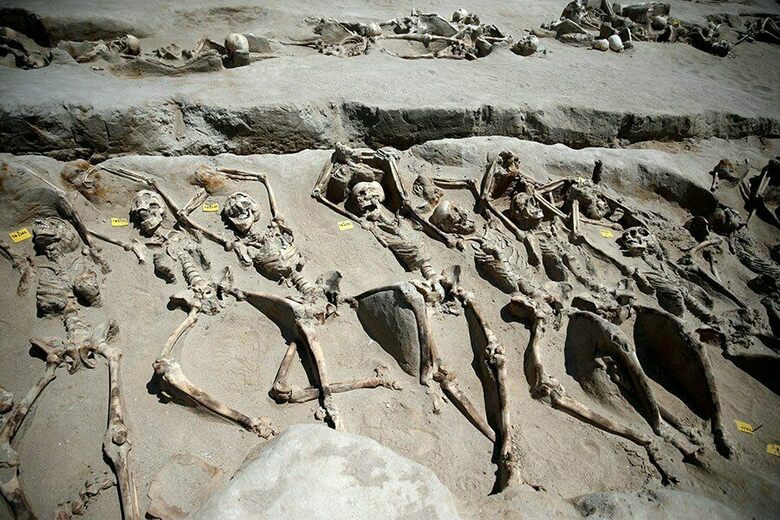Shackled Skeletons Unearthed in Greece Could Be Remains of Slaughtered Rebels
In the Faliron Delta district of southern Athens, two mass graves containing 80 ancient bodies have been found. Young men’s bodies from the 7th century BC were placed side by side, their arms shackled over their heads.

One skeleton had an arrow stuck in its shoulder, which suggested the young men may have been murdered, prisoners. Researchers believe they may have been captured for being followers of ancient would-be tyrant Cylon of Athens.
The findings, presented by chief archaeologist Stella Chrysoulaki, were made when builders were preparing the ground for the new Stavros Niarchos Foundation Cultural Center (SNFCC).
Given ‘the high importance of these discoveries,’ the council is launching further investigations, the culture ministry said.
Two small vases discovered amongst the skeletons have allowed archaeologists to date the graves from between 650-625 BC, a period of great political turmoil in the region,’ the ministry said.
The skeletons were found lined up, some on their backs and others on their stomachs. A total of 36 had their hands bound with iron. One of the men, the last one to be found in March, also had his legs tied with rope.
It remains a mystery as to why the men had their arms tied above their heads rather than behind their backs. Archaeologists found the teeth of the men to be in good condition, indicating they were young and healthy.
This boosts the theory that they could have been followers of Cylon, a nobleman whose failed coup in the 7th century BC is detailed in the accounts of ancient historians Herodotus and Thucydides.


Cylon, a former Olympic champion, sought to rule Athens as a tyrant.
But Athenians opposed the coup attempt and he and his supporters were forced to seek refuge in the Acropolis, the citadel that is today the Greek capital’s biggest tourist attraction.
The conspirators eventually surrendered after winning guarantees that their lives would be spared.
But Megacles, of the powerful Alcmaeonid clan, had the men massacred – an act condemned as sacrilegious by the city authorities.
Historians say this dramatic chapter in the story of ancient Athens showed the aristocracy’s resistance to the political transformation that would eventually herald Athenian democracy 2,500 years ago.
The skeletons were found in an ancient necropolis at around two and a half meters from the surface.
So far, only half of the Faliron Delta has been excavated so far.
The site served as a port for Athens in the classical age.
Archaeologists said the excavation will continue, and the culture ministry is set to make a decision on whether to build a museum on the site.
